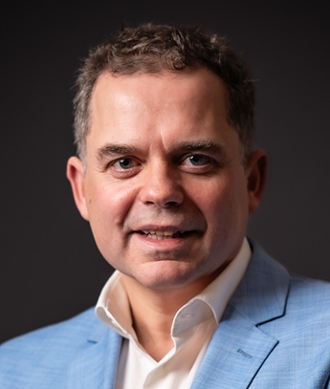An illness that is hard to stop
A healthy cell divides only when it is necessary for either growth or repair. In contrast, cancer cells multiply much more frequently and have escaped the natural control mechanisms. Changes in genetic material, known as mutations, are at the root of unbridled cell division. A cancer cell develops in steps, through an accumulation of mutations in genes involved in cell division. The immune system usually disposes of cells with harmful mutations, but when it doesn’t recognise cancerous cells or is unsuccessful in killing them, these cells can grow into a tumour.
Quality of life
It is becoming increasingly clear that cancer is a complex disease that develops differently in each patient. Molecular and genetic research provides researchers with more insight into how tumours are formed, and this knowledge allows us to develop new medications and treatments.
It’s not only tumours that differ from each other; the same is also true of patients. One patient may be quite young, while another is advanced in age. That calls for a personal approach to ensure the best possible quality of life at each stage of life.
Not only are new therapies being worked on; existing treatments are also constantly being improved. For example, Leiden researchers are working to reduce the side effects of chemotherapy, and LUMC surgeons are making increased use of fluorescent light in their operations to render a tumour more visible, allowing its removal with greater precision.
Precision medicine and stimulating the immune system
Over the last few years, an increasing number of medications have been appearing that target specific traits of cancer cells. For instance, there are now medicines that specifically inhibit the molecules responsible for uncontrolled cell growth. In Leiden, our researchers are developing and testing new substances for development into cancer drugs. A great deal of effort is also being put into immune therapy, in which the patient’s own immune system is stimulated to vigorously fight cancer cells. In Leiden we have had successes treating gynaecological tumours with a form of immune therapy that is still in an experimental stage.
Multiple strategies
What makes treating cancer so difficult is that a tumour often finds ways to escape the therapy and continue growing. Multiple strategies and combination therapies are needed to outwit such clever tumour cells, along with working together with different types of researchers to find an optimal treatment. This allows doctors to provide patients with better treatment with fewer side effects.
The LUMC is the linchpin for cancer research in Leiden. LUMC medical specialists work together with Leiden University chemists and biologists, as well as with other researchers both in this country and abroad. One unique advantage in Leiden is the Bio Science Park, which is home to a number of innovative businesses, as well as to the Leiden Academic Centre for Drug Research (LACDR), the Leiden Institute for Chemistry (LIC) and the Centre for Human Drug Research (CHDR). These bodies constitute an indispensable link in the chain of patient care.
Multidisciplinary research is also carried out beyond the borders of Leiden; for example with TU Delft and Erasmus University Rotterdam in the Particle Therapy Centre Holland (PTC).
Cancer pathogenesis and therapy research in LUMC
Oncology Centre LUMC
Holland PTC






























